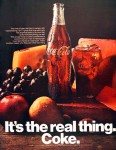 A slogan is a noun, usually repeated and persuasive that creates a memorable catch phrase, motto, or jingle, that expresses a particular aim or concept. A concept that you want to stick in your audience’s mind like glue to paper.
A slogan is a noun, usually repeated and persuasive that creates a memorable catch phrase, motto, or jingle, that expresses a particular aim or concept. A concept that you want to stick in your audience’s mind like glue to paper.
Second, what makes a slogan memorable? Brevity is first in line — normally 10 words or less. Rhythm is the only exception to brevity. Rhythm is easier to create if there is an association to the receiver’s past — like a particular jingle on TV during their teen years for those now in their 50s. What slogans still stick in your mind?
Third, what are the benefits for using slogans? Brevity, as mentioned earlier, meets the requirements of today’s fast pace. Slogans also influence decisions, persuade, and add credibility. Our brains are like filing cabinets. A slogan makes it easier to file and pull when needed. For NLPers, neuro-linguistic programming, slogans create anchors. When people repeat the slogan, then consider it filed.
There are five major slogan types:
(1) A feature — a uniqueness or difference between a substance, product or object. Ex: “Write an ebook in 7 days.”
(2) A benefit — a result that someone receives. Remember, this saves you [time or money].
(3) A question — thought-provoking methods. “How would you like to be a millionaire in three years?”
(4) A challenge — a dare. Ex: The Marines, “We are only looking for a few good men.”
(5) A structure — a design or collection put together for a single purpose. Ex: “The Abundance Center holds all the information you will ever need to know on abundance.”
There are seven ways to make a slogan memorable:
(1) Make it exciting
(2) Be boastful or exaggerated
(3) Self-referencing
(4) Metaphorical, playful or humorous
(5) Inspirational or uplifting
(6) To trigger painful memories or possibilities
(7) Use of vivid or freshful language